Will A 40-Watt Solar Panel Charge A 12-Volt Battery?
If you have a 40-watt solar panel, you may wonder what devices you can run with it. In this case, a common question is, ‘Can I charge a 12-volt battery with a 40-watt solar panel?
The short answer is yes, a 40-watt panel can charge a 12V battery if the panel’s voltage matches the battery’s needs. However, charging time depends on factors like sunlight, panel angle, and battery size. In this guide, I’m gonna explain how to efficiently charge a 12V battery with a 40W solar panel. To learn whether your 40-watt solar panel can charge a 12V battery or not, read the article below.
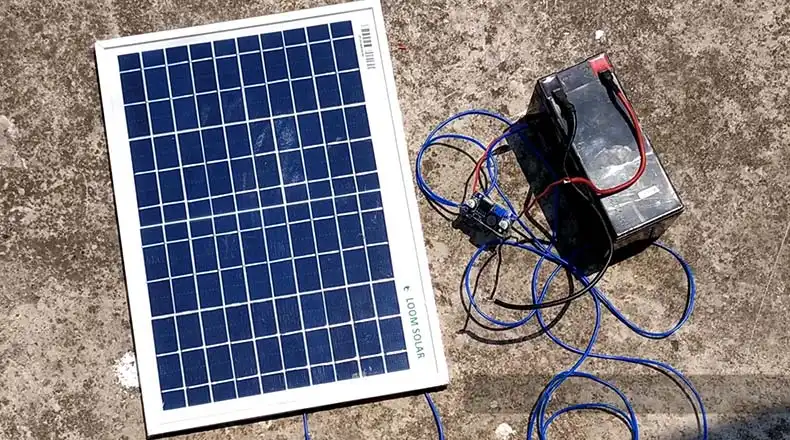
The Relationship Between Solar Panel Wattage and Battery Capacity
Before exploring the specifics of charging a 12-volt battery with a 40-watt solar panel, it’s essential to understand the relationship between solar panel wattage and battery capacity.
The wattage of a solar panel represents its power output under ideal conditions, typically measured in watts (W). A higher-wattage solar panel can generate more electrical energy, which can translate into faster charging times for batteries.
On the other hand, battery capacity is measured in amp-hours (Ah) and represents the amount of electrical charge a battery can store. The higher the battery capacity, the longer it will take to fully charge the battery, even with the same solar panel.
For example, a 40-watt solar panel can generate a maximum of 40 watts of power under optimal sunlight conditions. Assuming a 12-volt system, this equates to a maximum current output of approximately 3.3 amps (40 watts / 12 volts).
If you have a 100Ah 12-volt battery and want to charge it from a completely discharged state to a full charge (100% state of charge), it would theoretically take around 30 hours of continuous charging with the 40-watt solar panel (100Ah / 3.3 amps).
However, it’s important to note that these calculations are based on ideal conditions, and in real-world scenarios, various factors can affect the charging time and overall performance.
So, Can You Charge a 12-Volt Battery With A 40-Watt Solar Panel?
Absolutely! A 40-watt solar panel is capable of charging a 12-volt battery, but there are a few key considerations to keep in mind. First and foremost, the solar panel’s voltage output must match the battery’s voltage requirements. For a 12-volt battery, you’ll need a solar panel with a voltage output of around 16-18 volts, as batteries require a slightly higher voltage for proper charging.
It’s important to note that wattage alone doesn’t determine the panel’s ability to charge a battery; it’s the combination of voltage and current that ultimately determines the charging efficiency. A 40-watt solar panel typically generates around 2-3 amps of current, which is sufficient for charging most 12-volt batteries commonly used in recreational vehicles, boats, and off-grid systems.
However, the charging time will vary depending on factors such as the battery’s capacity, the amount of sunlight available, and the overall efficiency of the solar panel and battery system. With optimal conditions, a 40-watt solar panel can fully charge a typical 12-volt, 100Ah (amp-hour) battery in approximately 5-7 hours of peak sunlight.
What Is The Required Solar Panel Voltage For A 12-Volt Battery?
When it comes to charging a 12-volt battery with a solar panel, the voltage output of the panel is a crucial factor to consider. While the battery’s nominal voltage is 12 volts, it typically requires a higher voltage from the solar panel to initiate and maintain the charging process effectively.
The recommended solar panel voltage for charging a 12-volt battery is generally between 16 and 18 volts. This higher voltage is necessary to overcome the battery’s internal resistance and ensure that the charging current flows properly. Most solar panels are designed to provide an open-circuit voltage (Voc) of around 21 volts, which is ideal for charging 12-volt battery systems.
It’s important to note that if the solar panel’s voltage output is too low, it may not be able to charge the battery effectively or at all. Conversely, if the voltage is too high, it can potentially damage the battery or the charging controller. Therefore, it’s crucial to select a solar panel with a voltage output that falls within the recommended range for your specific 12-volt battery system.
Which Battery is Suitable for a 40-watt Solar Panel?
When pairing a 40-watt solar panel with a battery, it’s essential to consider the battery’s capacity and chemistry. The most suitable battery types for a 40-watt solar panel are:
1. Lead-Acid Batteries
Flooded Lead-Acid Batteries: These are the most common and affordable option, but they require more maintenance and are not suitable for deep discharge cycles.
Sealed Lead-Acid Batteries (AGM or Gel): These are maintenance-free and can handle deeper discharge cycles, but they are more expensive.
2. Lithium-Ion Batteries
Lithium-ion batteries are more expensive but offer higher energy density, longer lifespan, and better performance in extreme temperatures.
For a 40-watt solar panel, a 12-volt lead-acid battery with a capacity between 50Ah and 100Ah would be a suitable choice. This capacity range strikes a balance between cost, weight, and the ability to store enough energy for basic applications.
Lithium-ion batteries, while more expensive, can be a good option if you require a lightweight and compact solution with higher energy density and longer lifespan.
Ultimately, the choice of battery will depend on your budget, energy requirements, and the intended application (e.g., RV, boat, off-grid system).
How Long a 40w solar panel Can Take to charge a 12V battery?
The charging time for a 12-volt battery using a 40-watt solar panel can vary significantly depending on several factors. However, as a general guideline, here are some estimated charging times:
1. For a 12-volt, 50Ah (amp-hour) Battery
Under ideal conditions (full sunlight, optimal panel orientation), a 40-watt solar panel can charge a 50Ah battery from 50% to 100% in approximately 5-6 hours. If the battery is completely drained, it may take 8-10 hours of peak sunlight to fully charge it.
2. For a 12-volt, 100Ah Battery
From 50% to 100% charge, it can take around 10-12 hours of peak sunlight. If the battery is completely drained, it may require 16-20 hours of optimal sunlight to reach a full charge.
Factors Affecting Charging Time and Performance
While a 40-watt solar panel can technically charge a 12-volt battery, the charging time and overall performance will be influenced by several factors:
- Sunlight Conditions: The amount of sunlight available and the angle of incidence on the solar panel will directly impact its power output. Cloudy or shaded conditions can significantly reduce the panel’s efficiency and slow down the charging process.
- Battery Temperature: Both high and low temperatures can affect the charging efficiency of batteries. Lead-acid batteries, in particular, may require temperature compensation during charging to prevent damage or premature degradation.
- Battery Age and Condition: As batteries age or experience repeated deep discharge cycles, their overall capacity and charging efficiency can decrease, potentially increasing the charging time required.
- System Losses: Factors such as cable resistance, voltage drops, and inefficiencies in the charge controller can contribute to system losses, reducing the overall charging efficiency.
- Load Consumption: If you have electrical loads (e.g., lights, appliances) connected to the battery while charging, they will consume a portion of the available power from the solar panel, slowing down the charging process.
To optimize the charging performance of your 40-watt solar panel and 12-volt battery system, it’s essential to consider these factors and implement appropriate measures, such as proper solar panel orientation, temperature management, and efficient system design.
Best Practice for Using a 40-Watt Solar Panel to Charge a 12-Volt Battery
When setting up a 40-watt solar panel to charge a 12-volt battery, there are several system considerations and best practices to keep in mind:
- Charge Controller: A charge controller is a crucial component that regulates the flow of electricity from the solar panel to the battery, preventing overcharging and ensuring efficient charging. Ensure that your charge controller is compatible with both the solar panel and battery voltage, and sized appropriately for the system.
- Cable Sizing: Proper cable sizing is essential to minimize voltage drops and resistive losses, which can impact charging efficiency. Use appropriately sized cables based on the distance between the solar panel, charge controller, and battery bank.
- Battery Bank Configuration: If you have multiple 12-volt batteries, consider connecting them in parallel to increase the overall capacity and reduce charging time. However, ensure that the batteries are of the same type, age, and capacity to avoid imbalances.
- Solar Panel Orientation and Tilt: Position your solar panel to receive maximum sunlight exposure throughout the day by considering factors such as the panel’s orientation, tilt angle, and potential shading from nearby objects.
- Battery Maintenance: Proper battery maintenance, including regular equalization (for lead-acid batteries), cleaning, and monitoring of electrolyte levels, can help extend battery life and ensure efficient charging.
- Load Management: If possible, minimize or disconnect any non-essential electrical loads from the battery while charging to maximize the available power from the solar panel for charging.
By following these best practices and optimizing your system for efficient charging, you can maximize the performance of your 40-watt solar panel and effectively charge your 12-volt battery using the power of the sun.
Summary
In summary, a 40-watt solar panel can charge a 12-volt battery, but charging time varies based on conditions like sunlight, panel orientation, and battery capacity. By understanding the factors involved, you can optimize your setup for efficient solar charging. If you have any other questions, feel free to leave a comment below. Happy solar charging!
FAQs
Can I Use A Higher Wattage Solar Panel To Charge My 12v Battery Faster?
Yes, using a higher wattage solar panel can potentially charge your 12-volt battery faster compared to a lower wattage panel. A higher wattage panel can generate more electrical power, which can translate into a higher charging current and reduced charging time for the same battery capacity.
Is It Better To Use Multiple Smaller Solar Panels Or A Single Larger Panel?
In general, using a single larger solar panel is more efficient than connecting multiple smaller panels in parallel. Larger panels tend to have higher efficiency ratings and can minimize system losses due to fewer connections and cable runs. However, space constraints or specific application requirements may necessitate the use of multiple smaller panels.
Can I Charge My 12v Battery With A Higher Voltage Solar Panel?
Yes, it is possible to charge a 12-volt battery with a higher-voltage solar panel, such as a 24-volt panel. However, you will need a charge controller that can step down the voltage from the solar panel to match the battery voltage. Ensure that the charge controller is compatible with both the solar panel and battery voltages.
What Is The Ideal Charge Rate For A 12v Lead-Acid Battery?
The ideal charge rate for a 12-volt lead-acid battery is typically between 10-20% of its capacity. For example, if you have a 100Ah lead-acid battery, the ideal charge rate would be between 10 and 20 amps. Charging at higher rates can potentially damage the battery or lead to overheating.
How Can I Maximize The Charging Performance Of My Solar Panel System?
To maximize the charging performance of your solar panel system, consider factors such as proper solar panel orientation and tilt angle, minimizing shading and obstructions, proper cable sizing, and efficient system design. Additionally, regular maintenance and monitoring of the battery and system components can help ensure optimal performance over time.

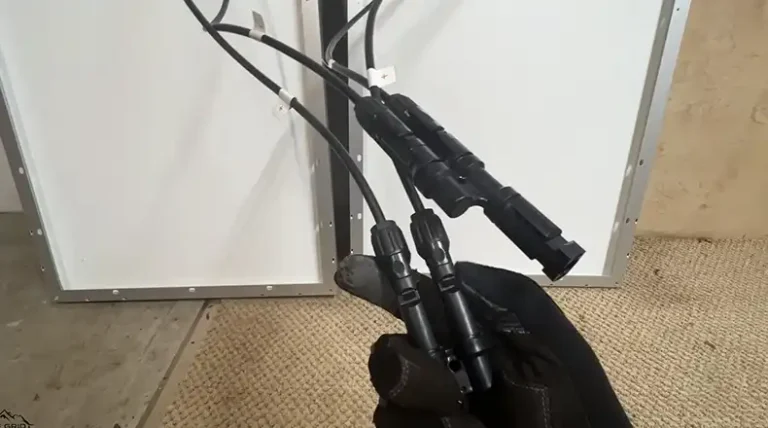
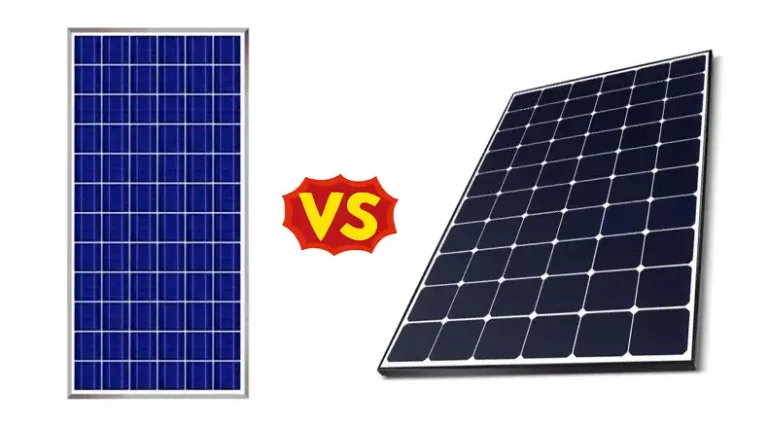
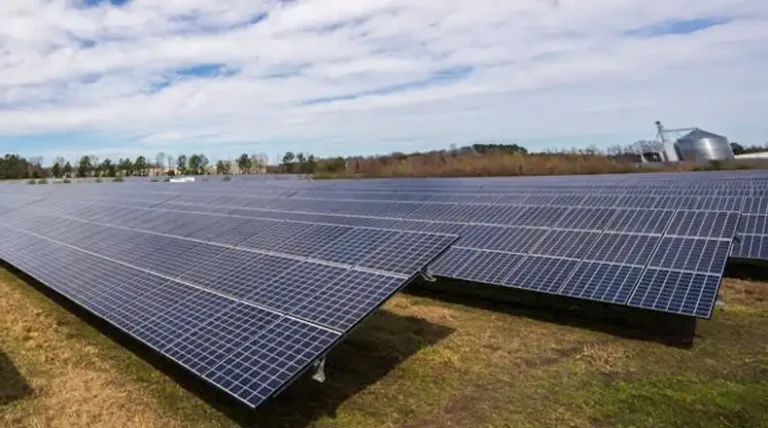
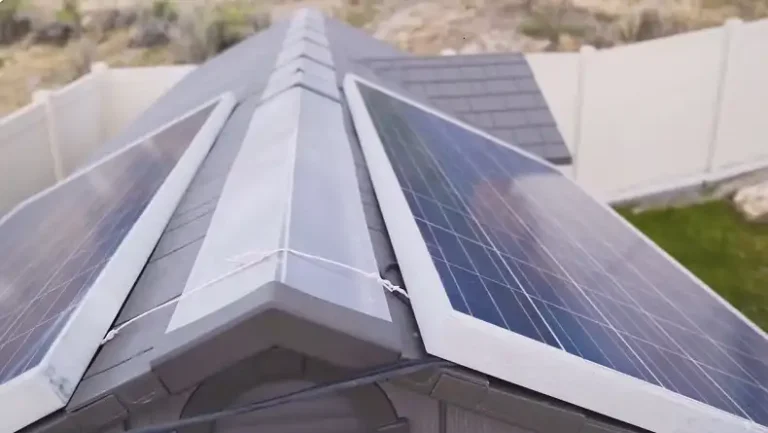
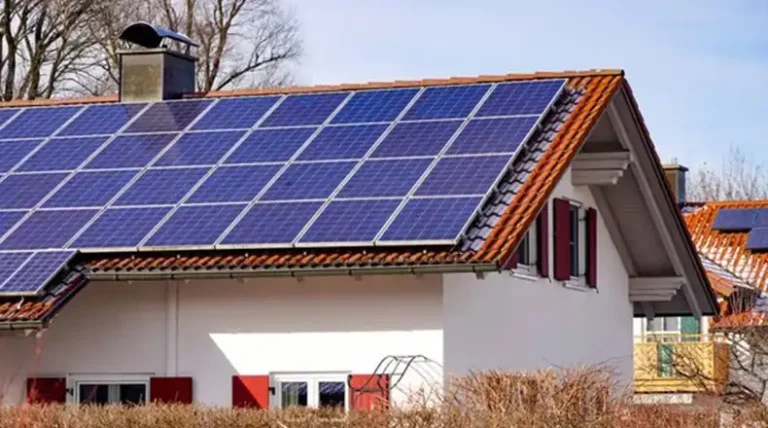
![[Answered] How Much Does It Cost to Pigeon Proofing Solar Panels?](https://www.itekenergy.com/wp-content/uploads/2023/07/How-Much-Does-It-Cost-to-Pigeon-Proofing-Solar-Panels-768x428.webp)